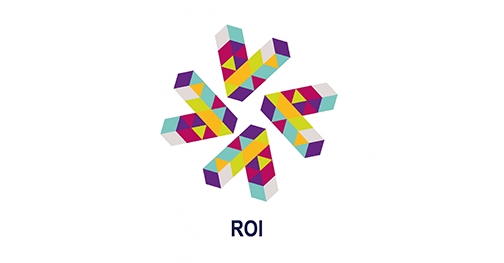RoI of WBL - Return on Investment of Work Based Learning and apprenticeships
ROI of WBL is an Erasmus+ project, funded by the European Commission. Its scope is to offer support to SME entrepreneurs and managers and to VET organisations, who are engaged in apprenticeships and Work Based Learning (WBL). The overall aim of the project is to make apparent the benefits of WBL and apprenticeships at the level of individual SMEs and the society.
SMEs are Europe’s motor for growth and employment, as they represent 99% of all businesses in the EU. The availability of skilled labour is an important factor to the prosperity of European SMEs, so part of them is implementing Work Based Learning (WBL) apprenticeship programmes in order to train skilled workers. WBL and apprenticeships can be strongly useful for SMEs, which can benefit of higher productivity, reduction of external recruitment, high motivated and talented personnel, enhanced corporate image, staff retention, opportunity to fill skill gaps. Moreover, there’s a broader spectrum of advantages that lies outside of SMEs and benefits the entire society, such as increased employability and employment of young people, work experience opportunities, development of a pool of skilled workers at regional level, social inclusion of vulnerable groups, economic returns like reduction of public expenditure.
Not all SMEs are aware of the importance of apprenticeships programmes and of the advantages of WBL. Based on this fact, “ROI of WBL and apprenticeships” project wants to develop a Return on Investments (ROI) model and a digital tool that will allow European SMEs to calculate the benefits of WBL and apprenticeship, either for the company itself and for the local society. The direct target groups of the project are SME’s entrepreneurs and managers as well as training operators that cooperate with SMEs for the provision of WBL and apprenticeships. Final beneficiaries though are VET learners who benefit from the increased provision of WBL opportunities in their local-regional environment.
The general objectives of the project are: to make apparent the benefits of WBL and apprenticeships at the level of individual SMEs and the society; to promote WBL and apprenticeships by motivating the engagement of SMEs; to contribute to the sustainable investment of WBL and apprenticeships by supporting the self-motivation for investment from the side of the SMEs. The specific objectives of the project are: the creation and promotion of an apprenticeship-friendly SMEs badge to increase the engagement of companies in the provision of WBL; the promotion of VET – SMEs cooperation, through experimentation and validation of the ROI model; the organisation of promotional events addressed to SMEs entrepreneurs, VET centres and stakeholders that are interested to apply and promote the ROI model and tool.
The project will provide three intellectual outputs to entrepreneurs, managers and training operators, in order to implement their apprenticeships programmes:
- A Model for Return on Investment of WBL and apprenticeships (IO1). It is a model for the calculation of ROI of WBL and apprenticeships made by SMEs. The Intellectual Output is based on well-developed parameters that allow the calculation of benefits and costs of apprenticeships, both for companies and for general society.
- The model is applicable to all sectors and is supported by a Digital Tool (IO2). The tool will help SMEs to translate the theoretical model for the calculation of ROI of WBL and apprenticeships for SMEs into an attractive and easily accessible way.
- A Good practices guide (IO3). The guide is addressed to SMEs in order to provide a set of instructions, suggestions and successful examples in partners’ countries. The guide will help SMEs into designing, implementing and monitoring profitable apprenticeships practices.
The calculation of ROI represents an innovative way to highlight the importance of apprenticeships. In economics, ROI is the calculation that compares the value of outcomes to the value of the resources needed to create them. The results of the calculation demonstrate the efficiency of an investment or activity. This can aid decision making by highlighting if an investment provides a positive return, and if there is more than option, it can help decide which option provides the greatest return. By calculating ROI, SMEs can understand if their investments in WBL and apprenticeships is having a positive return or a negative return. Moreover, the definition of parameters and measurement indicators, allows SMEs to change their behaviours in fields that impacts in negative way on ROI.
The ROI of WBL project is the result of the joint work of six European partners, each of them specialist in is own field. The consortium is composed of:
TUKE (Slovakia) a leading Technical University
IDEC (Greece) a consulting and training organisation
CECOA (Portugal) a public vocational training centre
SVUK (UK) a national network focusing on social value and social impact
KISMC (Bulgaria) a NGO
PIT (Spain) a private VET and secondary school
COIN (Cyprus) a dynamic consultancy that focuses on new and emerging technologies
Dlearn (Italy) an EU wide network for Digital Learning.
To find out more, visit our webpage http://roiwbl.eu/
Or follow us on Facebook https://www.facebook.com/ROIWBL/
